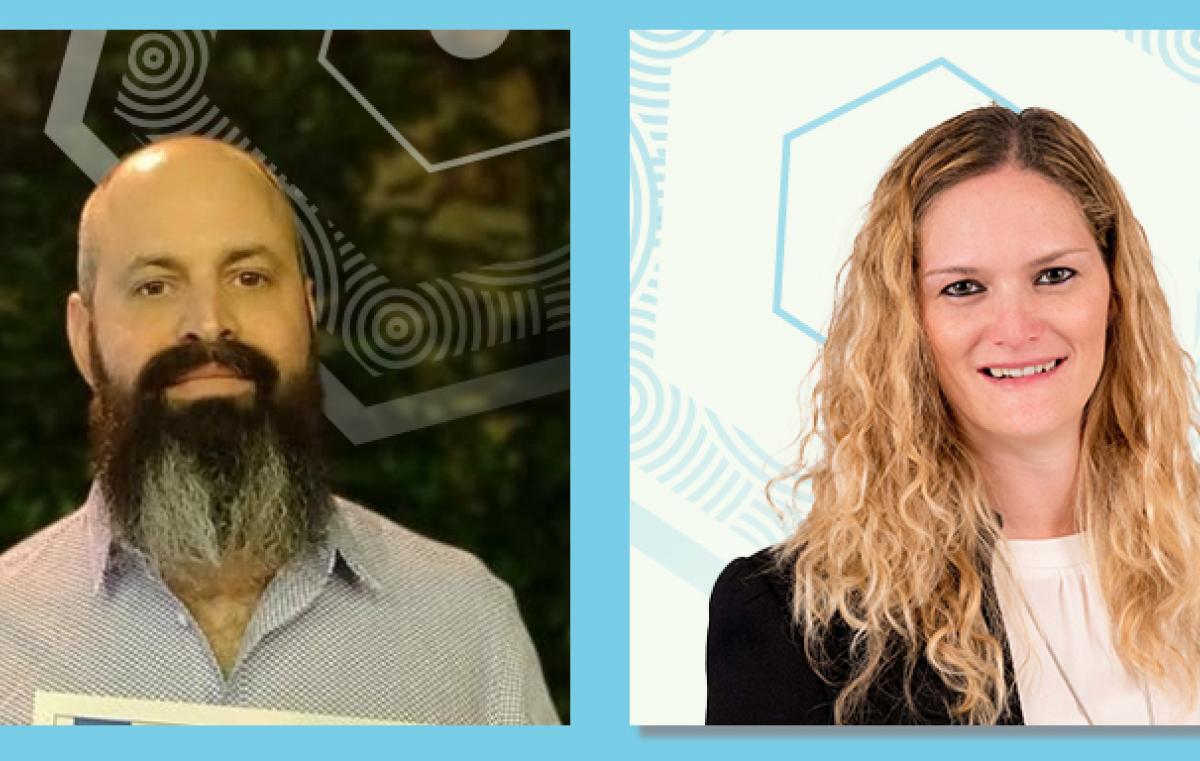Top Honors
Two Bar-Ilan University researchers awarded coveted European Research Council Starting Grants

Two outstanding Bar-Ilan University researchers -- Dr. Nitzan Gonen, of the Mina and Everard Goodman Faculty of Life Sciences and Institute of Nanotechnology and Advanced Materials, and Dr. Shai Bel, of the Azrieli Faculty of Medicine -- are the recipients of two European Research Council (ERC) Starting Grants totaling NIS 12 million for their research on sex development, sex reversal and infertility, and the role of the intestinal mucus layer in development of inflammatory bowel diseases such as Crohn’s disease and ulcerative colitis, the ERC announced today.
Dr. Gonen investigates the sex determination process -- how a fetus develops into a male or female. At the beginning of fetal development, males and females both develop the same primary organ called the bipotential gonad. If certain genes are expressed, the gonad will become testicles, which will later secrete the male sex hormones, and a male embryo will develop. If other genes are expressed, the gonad will develop into the ovaries, which will secrete female sex hormones and the fetus will develop into a female.
A mutation in each of the dozens of different genes involved in this process can lead to a syndrome called Disorders of Sex Development (DSD) that is accompanied by a mismatch between the genetic sex (XY/XX) and the phenotypic sex (male or female). That is, a baby can have a male (XY) chromosomal composition but look externally like a female, and vice versa. This syndrome occurs in one in every 4,000 infants. All DSD patients are infertile.
"We are currently able to identify the mutation that causes the sex reversal in less than 50% of patients following genetic sequencing of the entire coding genes in the genome," says Dr. Gonen, who joined Bar-Ilan University in 2019 following a postdoctoral fellowship at the Francis Crick Institute in London. "It is important to understand that coding genes constitute only 2% of the genome. This grant will allow us to look at the remaining 98% of the genome, that does not encode for genes, and understand their involvement in sex determination," she adds. Dr. Gonen and her lab will also develop "testicular organoids" (mini testis in a dish) to simulate testicle development and function, which will facilitate understanding of sex reversal, the ability to produce sperm and infertility. In the future this system may enable the production of semen in the laboratory and thus allow barren couples to produce a biological child.
The immune system has been shaped by millions of years of evolution, enabling it to mount an inflammatory response to virtually every microbe in our environment. Bacterial invasion into the inner tissues of our bodies will result in an inflammatory response, which is crucial for clearance of the invaders. Yet in our intestines, the immune system seems to be very tolerant toward the trillion of bacteria that colonize it. This is evident by the fact that most humans do not suffer from constant intestinal inflammation.
To facilitate this tolerance, our intestinal cells secrete thick mucus which separates the microbes from the gut tissue. This separation allows us to benefit from a mutual relationship with our gut microbes. Research has found that in the intestines of patients suffering from inflammatory bowel disease this mucus barrier becomes penetrable by bacteria. This leads to constant contact of these bacteria with our intestinal cells and activation of an inflammatory response.
Dr. Shai Bel, of the Azrieli Faculty of Medicine, and his team of researchers will explore this phenomenon. "Our goal is to understand why this mucus barrier breaks down, how it can be healed, and how these findings can be brought to the clinic to induce remission in patients suffering from inflammatory bowel diseases such as Crohn’s disease and ulcerative colitis," says Bel, who earned all of his academic degrees in Life Sciences from Bar-Ilan University and joined the Azrieli Faculty of Medicine in 2018 after completing his postdoctoral studies at the UT Southwestern Medical Center in Dallas.
Prof. Shulamit Michaeli, Vice President for Research: "In the past month, our researchers have received grants worth a total of NIS 20 million. This is a vote of international confidence in the extraordinary research conducted at Bar-Ilan."